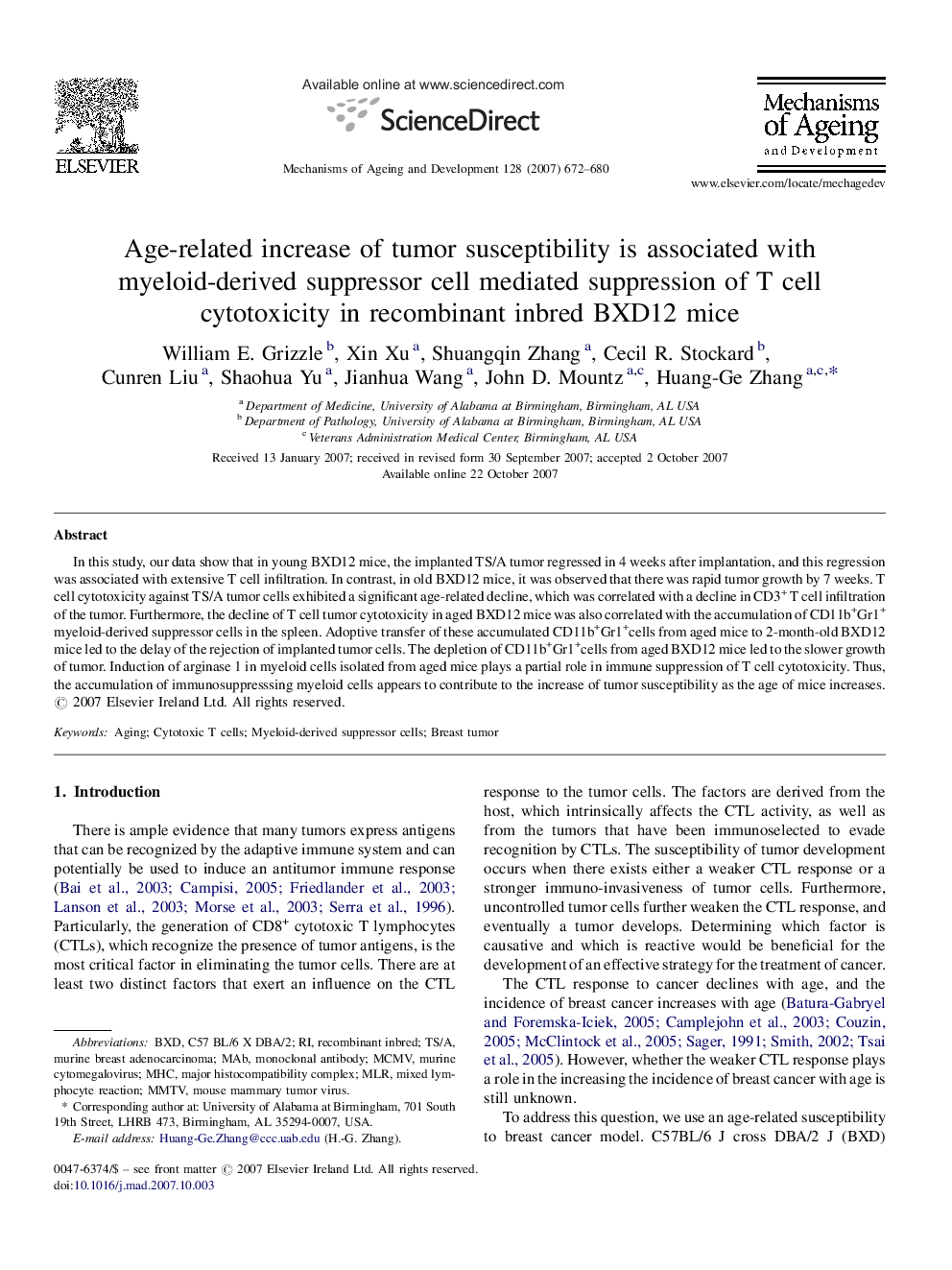| Article ID | Journal | Published Year | Pages | File Type |
|---|---|---|---|---|
| 1919657 | Mechanisms of Ageing and Development | 2007 | 9 Pages |
In this study, our data show that in young BXD12 mice, the implanted TS/A tumor regressed in 4 weeks after implantation, and this regression was associated with extensive T cell infiltration. In contrast, in old BXD12 mice, it was observed that there was rapid tumor growth by 7 weeks. T cell cytotoxicity against TS/A tumor cells exhibited a significant age-related decline, which was correlated with a decline in CD3+ T cell infiltration of the tumor. Furthermore, the decline of T cell tumor cytotoxicity in aged BXD12 mice was also correlated with the accumulation of CD11b+Gr1+ myeloid-derived suppressor cells in the spleen. Adoptive transfer of these accumulated CD11b+Gr1+cells from aged mice to 2-month-old BXD12 mice led to the delay of the rejection of implanted tumor cells. The depletion of CD11b+Gr1+cells from aged BXD12 mice led to the slower growth of tumor. Induction of arginase 1 in myeloid cells isolated from aged mice plays a partial role in immune suppression of T cell cytotoxicity. Thus, the accumulation of immunosuppresssing myeloid cells appears to contribute to the increase of tumor susceptibility as the age of mice increases.
